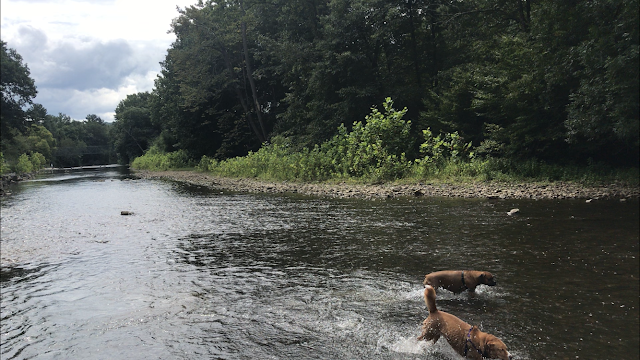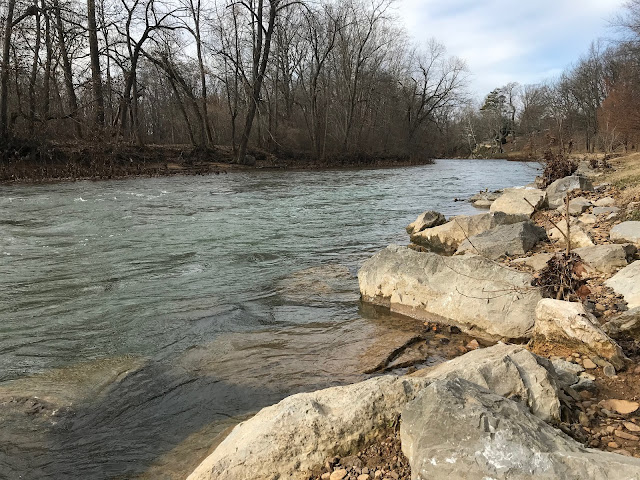Family chickens drinking water from the South River
Recently, South River became more significant after the town's DuPont factory was mandated to pay forty-two million dollars in reparations for dumping mercury waste into the river since the 1930s. This settlement is one of the largest environmental settlements in the history of Virginia. While the mercury poisoning data was released in the 1970s along with a strong warning to not consume fish from the river, the settlement was not reached until 2017, nearly fifty years later. Despite the amount of time it took to reach a settlement, this example of company accountability is a prime example of what needs to be done to help prevent water pollution.
DuPont Spandex Plant over South River
During the industrial revolution, many factories were built near rivers in order to power machines and provide transportation. However, these bodies of water were also used for sanitation, or to dump waste, which became increasingly chemical as production advanced. This water pollution directly affects people's lives and livelihoods, as seen again and again in tales of chemical poisonings, clusters of cancer in small towns, and sudden, unexplained deaths of livestock. This has happened in Dry Run Creek in Washington, West Virginia, to a cattle farmer whose livestock started dying off due to the DuPont chemical C8, which binds to plasma proteins and causes mutations during pregnancy. It has happened to Arbuckle Creek in Minden, West Virginia, where the estimated chance of developing cancer is over 80% due to exposure to PCB chemicals in a local mine. Shockingly, despite this percentage, the Environmental Protection Agency turned down resident's chances for relocation in October of 2019. In these cases, it is common for the companies or even the EPA to blame residents for the problems in their communities, e.g., the cattle were dying due to incorrect diets, the residents of Minden were affected because of their diets.
Water pollution gets everywhere--it goes into the soil around the rivers, it poisons fish, and it poisons crops, all of which make their way back to people. For the health of the people, it is necessary to hold corporations accountable, as what happened to the DuPont factory over the South River. The problem is that it is often a small, family farmer vs. a multi-million dollar corporation which has withstood myriads of lawsuits over the years. It is also necessary to employ more environmental regulations on business, not relax them, which has happened in recent years. Employing regulations and lawsuits to make sure that companies know they will be checked is essential to protecting the health of the people. Holding these companies accountable can proactively prevent pollution, and makes sure everyone has a South River which is safe to swim in.




A topic which made me both really mad and hopeful at the same time, super cool and great to know!
ReplyDelete